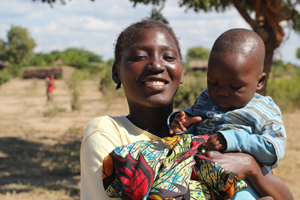Knowledge Brokering
As knowledge broker, Skat Foundation facilitates knowledge exchange between and among various stakeholders, including researchers, practitioners, and policy makers supporting the co-development of innovation in its areas of expertise. Through knowledge brokering, Skat Foundation aims to bridge the gap between academic research, policy and practice and to encourage evidence-based decision-making, and decision-based evidence making.
Rural Evidence and Learning for Water (REAL Water)
Rural Evidence and Learning for Water (REAL Water) is an implementation research program (2021-2026) launched by USAID that aims to develop strategies to expand access to safe, equitable, and sustainable rural water supplies in low- and middle-income countries. REAL-Water draws knowledge from a consortium of six partners, namely The Aquaya Institute, Aguaconsult, the Ashoka Trust for Research in Ecology and the Environment (ATREE), the Kwame Nkrumah University of Science and Technology (KNUST), Skat Foundation’s Rural Water Supply Network (RWSN), Safe Water Network and Water Mission.
Sustainable and Innovative Rural Water, Sanitation and Hygiene (SIRWASH)
The “Sustainable and Innovative Rural Water, Sanitation, and Hygiene (SIRWASH)” program is an initiative funded by the Swiss Agency for Development and Cooperation (SDC) and implemented by the Inter-American Development Bank. At its core, the program aims to facilitate the sharing of knowledge and networking opportunities concerning rural WASH matters within the Latin America and the Caribbean (LAC) region. The program operates at both regional and global levels, with a special focus on Brazil, Bolivia, Haiti, and Peru.
SIRWASH seeks to influence on public policies for rural water and sanitation through advocacy for political dialogues and by supporting national and regional authorities in formulating, promoting, and implementing policies that ensure safe rural water, sanitation, and hygiene services.
Hands4health
h4h – Hand hygiene, water quality and sanitation in primary health care facilities and schools
Hands4health (h4h) is a joint initiative of NGOs, academia and private sector entities that strives to develop and implement a comprehensive and holistic approach to hand hygiene, water quality and sanitation in primary health care facilities (HCFs) and schools not connected to functional water supply systems.
Beyond the implementation of activities, the project comprises an extensive research component in Switzerland and the project countries (Burkina Faso, Mali, Nigeria and Palestine), focusing on the development of hardware and software interventions, as well as on a health impact evaluation.
Reach
REACH – improving water security for the poor (Knowledge Broker)
Reach is a global research programme, led by the University of Oxford, to improve water security for the poor by delivering world-class science that transforms policy and practice. Living in poverty often means a struggle for water security. Rapid urban growth, unregulated pollution from industry, extreme floods and droughts, lack of reliable and safe drinking water, and increasing damage to water ecosystems threaten economies and undermine the lives of the poor.
UPGro
UPGro Unlocking the Potential of Groundwater for the Poor
Unlocking the Potential of Groundwater for the Poor (UPGro), is a seven-year international research programme (2013-2020) which is jointly funded by UK’s Department for International Development (DFID), Natural Environment Research Council (NERC) and the Economic and Social Research Council (ESRC). It focuses on improving the evidence base around groundwater availability and management in Sub-Saharan Africa (SSA) to enable developing countries and partners in SSA to use groundwater in a sustainable way to benefit the poor.






